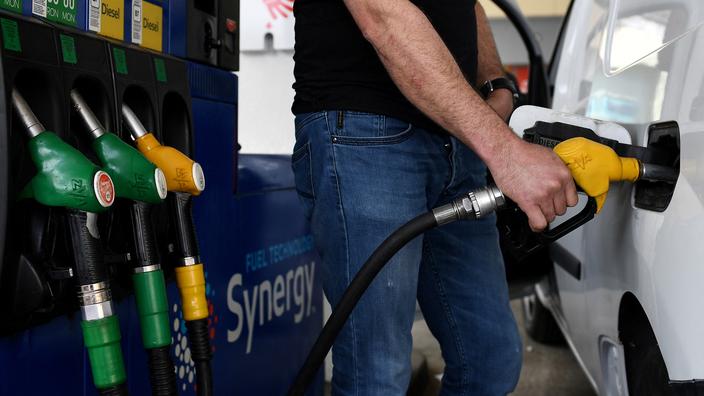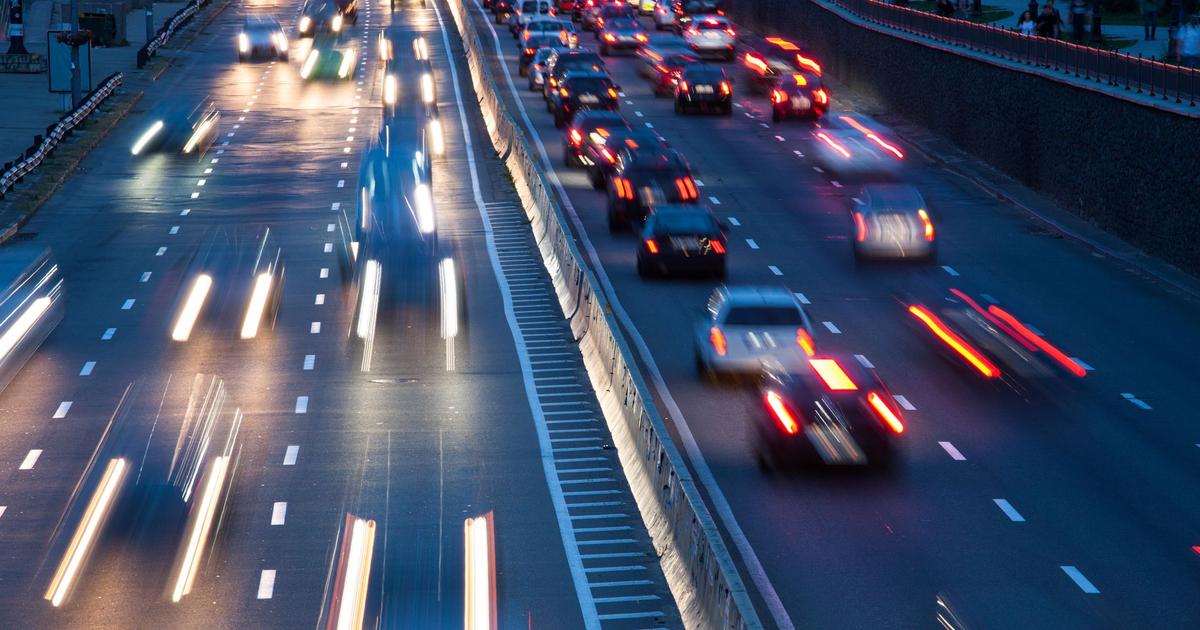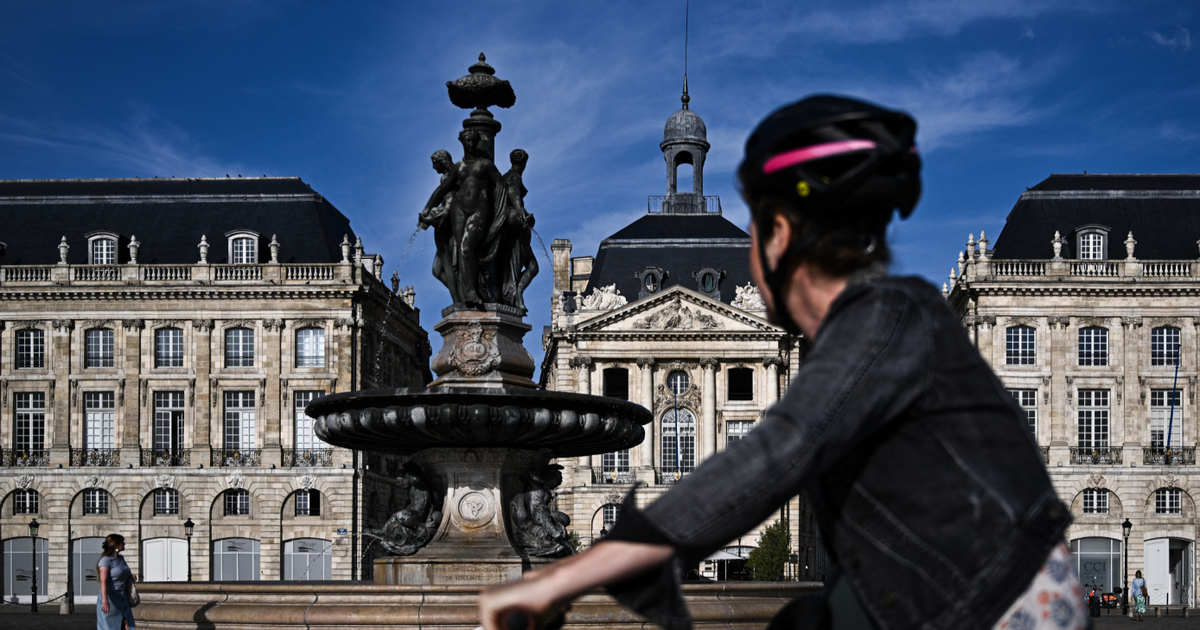It is a particularly explosive matter, which the authorities are monitoring closely.
The rise in prices at the pump caused by the increase in oil prices is proving burdensome for millions of motorists, who pay their full gasoline by sticking their tongue out.
The heavier bill also brings back the demon of social unrest, three years after the start of the “
yellow vests
” movement.
To discover
SIMULATOR - Are you getting paid well?
Read alsoThe programmed end of gasoline engines
Because the car remains a preferred mode of travel, if not constrained, to get to work for a large part of the French. In 2017, three-quarters of the 24.6 million active workers studied by INSEE used it, regardless of the distance traveled. The other modes of transport are much less used, whether it is public transport (16%), two wheels (2%), cycling (2%) or walking (6%). The car is the majority as soon as the individual has to travel more than a kilometer to get to his place of work. Unsurprisingly, the greater the distance, the more it is used.
Despite the development of public transport and cycling, the car has declined only slightly, by only 0.9 percentage point in five years, state statisticians. Executives, more urban, are the only ones to use the car less than other means of transport to get to their place of work: the proportion exceeds 56% in all other socio-professional categories, reaching 77.2 % for craftsmen and traders. Paris is also an exception compared to the rest of the territory: “
the massive use of public transport is very specific to the area of attraction of Paris since 44% of working people residing there use the metro, bus, tram, RER or train to go to work. In the city of Paris,seven out of ten working people use public transport
», Underlines the document.
A means of transport also essential in daily life
Beyond its usefulness for getting to work, the car is also essential for millions of French people to go to the doctor or to buy essential products, such as bread.
In a blog post posted in early October, two researchers highlighted the significant distances many households had to travel to access basic goods and services.
In the Grand Est region, for example, 57% of the 205,000 inhabitants of "
rural communes where the population density is very low [...] take an average of at least 10 minutes by car to access a set of the most useful facilities. on a daily basis
”. Another example, "
in Bourgogne-Franche-Comté, 4% of young people in the region [...] lived in 2014 in areas where the time of access by car to a cultural space (theater, museum, cinema, etc.) or at a training establishment (high school, apprenticeship center, higher education, etc.) took more than 40 minutes on average
”. Difficult, in these conditions, to do without a motorized mode of travel.
"Today, not only do we need a reduction in taxes, but we must immediately, with a lowering effect of at least 20 cents per liter"
Pierre Chasseray, general delegate of the 40 million motorists association.
“
There is work. And medical travel is the car. Kids at school, extracurricular activities, it's the car. Social time, going on weekends, seeing the family, that's the car,
”enumerates Pierre Chasseray. The general delegate of the 40 million motorists association is worried about a rise in fuel prices which may set fire to the powders, by affecting millions of French people driving to go to the bakery, to the doctor, to the sport. “
We have a real problem, a state that has not taken the measure of what happened three years ago. Emmanuel Macron, at 43, has Alzheimer's,
”protests the representative.
Rejecting the principle of a fuel check - "
the gas factory!"
", He sweeps - and a floating TICPE, Pierre Chasseray suggests lowering the VAT on fuels to 5.5%,"
at the level of basic necessities
". A long-standing claim of his association, now also defended ... by Anne Hidalgo, yet long opposed to the control of the car.
Without this tax cut, the social tensions of 2018 are likely to recur, warns the delegate general, worried about the lack of reaction from the executive so far. “
It puts a strain on families' budgets [...]. Today, not only is there a need for a reduction in taxes, but it is necessary immediately, with a lowering effect of at least 20 cents per liter,
”he exasperated. “
The government is Parisian, but Paris is not France. It's not even Île-de-France. It is the French exception, and we govern from the exception,
”he sighs.
For its part, the government ensures that it is studying avenues to help the millions of French people forced to travel by car, and who see with concern the bill for filling up with gasoline. "
We are working on protective measures that could be taken to support the French in these difficult times
," said Gabriel Attal, Wednesday. The executive wants to support the most precarious as well as the working people who take their car "
to go to work
", added the spokesperson, without giving a precise timetable. "
It is a serious mistake to wait, because when anger moves in the street, it is over
," answers Pierre Chasseray
. We know it's going to blow up. The situation is extremely tense
He warns, without mince words.














